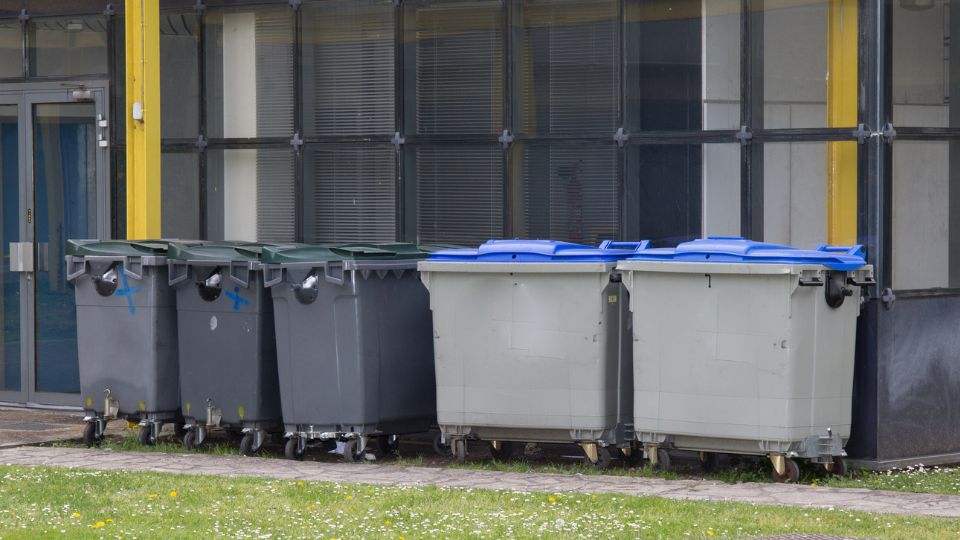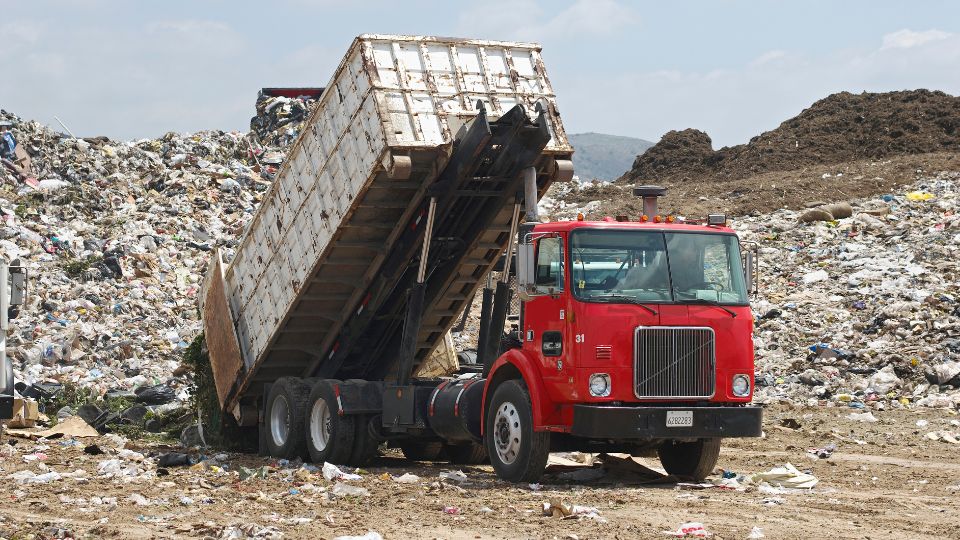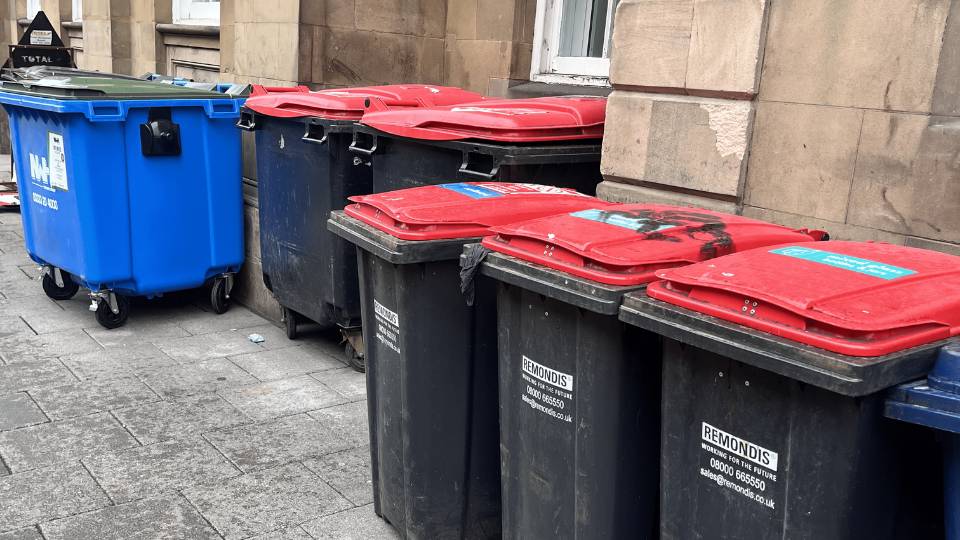
A Quick Summary:
- Commercial waste in the UK is collected, sorted, and either recycled, sent to landfill, or converted to energy.
- Recycling conserves resources, while waste-to-energy (or WtE) reduces landfill use and generates power.
- Compliance with waste regulations is crucial to avoid fines and support sustainability.
For UK business owners, understanding where commercial waste goes is not just about compliance; it’s about making informed decisions that benefit both the environment and your business.
Proper waste management is crucial in today’s eco-conscious market, and knowing the end destinations of your waste can help you implement better practices and reduce costs.
Keep reading to find out more about how commercial waste in the UK is processed and see how you and your business can be manage it effectively.
Table of Contents
- Collection and Sorting
- Recycling
- Commercial Waste in Landfill
- Commercial Waste: Energy Recovery
- Importance of Compliant Commercial Waste Management
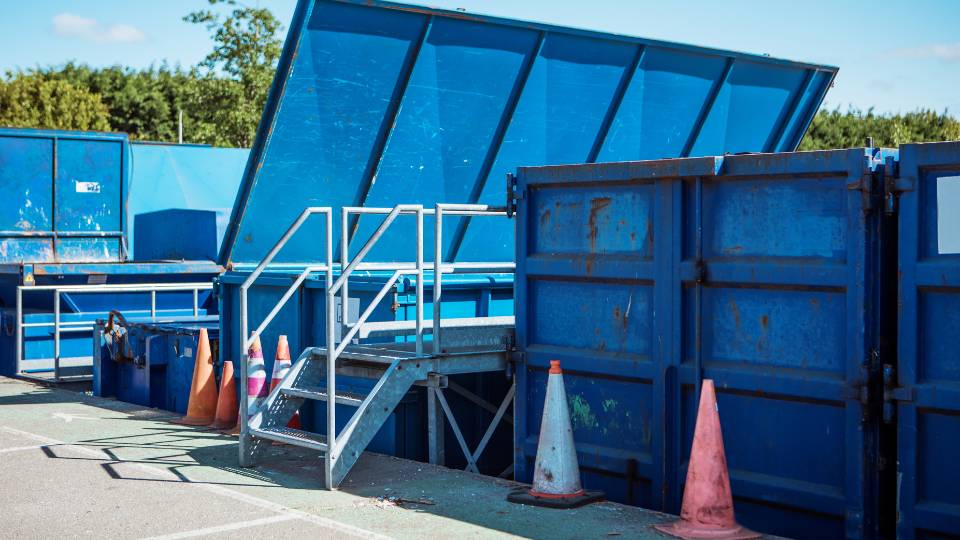
Collection and Sorting
Initial Collection of Commerical Waste
Commercial waste is typically collected by licensed waste management companies (just like us!)
We can provide various bins for different types of waste such as general waste, recyclables, glass waste, food waste, clinical and much more.
Sorting Facilities
Once collected, the commercial waste is transported to sorting facilities.
Here, materials are separated based on their type – paper, plastics, metals, and more.
Advanced technology, like automated sorting machines and manual labor, is used to ensure materials are correctly categorised.
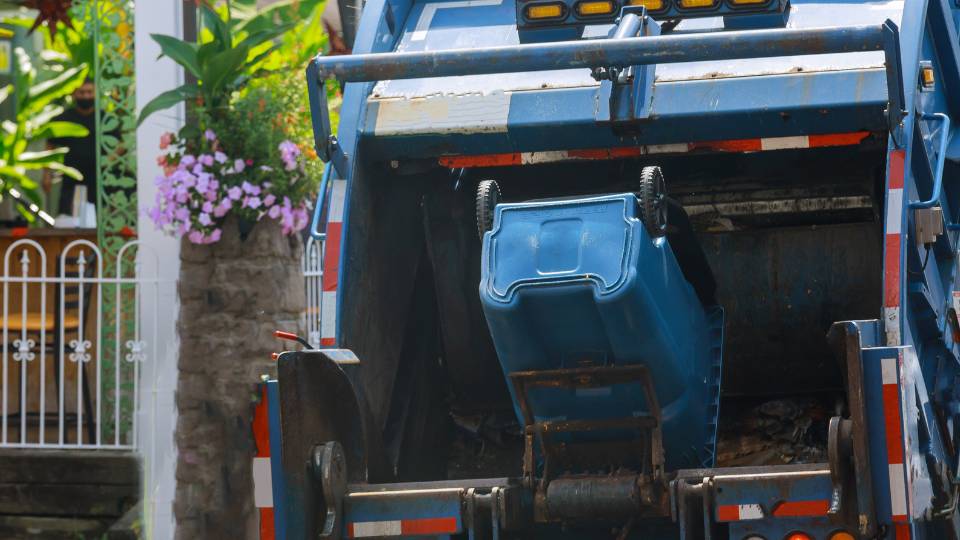
Recycling
Recycling Process
Materials such as paper, cardboard, plastics, and metals are sent to recycling plants.
These materials are cleaned and processed into raw materials that can be used to manufacture new products.
For instance, recycled paper can become new office supplies, and plastic can be transformed into packaging materials.
Recycling Benefits
Recycling helps conserve natural resources, reduces greenhouse gas emissions, and minimises the amount of waste sent to landfills.
According to WRAP UK, businesses can save money and improve their environmental footprint by prioritising recycling.
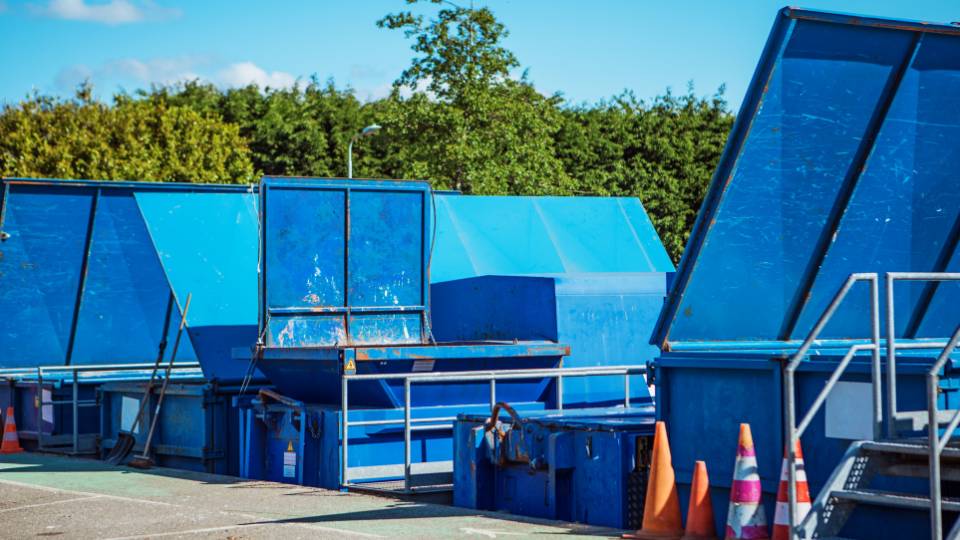
Commercial Waste in Landfill
Landfill Use
Not all waste can be recycled.
Some general waste, which cannot be reused or recycled, is often sent to landfill sites.
These sites are carefully managed to minimise environmental impact, but they still pose challenges such as methane emissions and long-term land use.
Commercial Waste Landfill Regulations and Fees
The UK government imposes strict regulations and landfill taxes to encourage businesses to reduce the amount of waste they send to landfills.
The landfill tax has steadily increased, pushing businesses to find more sustainable waste management solutions.
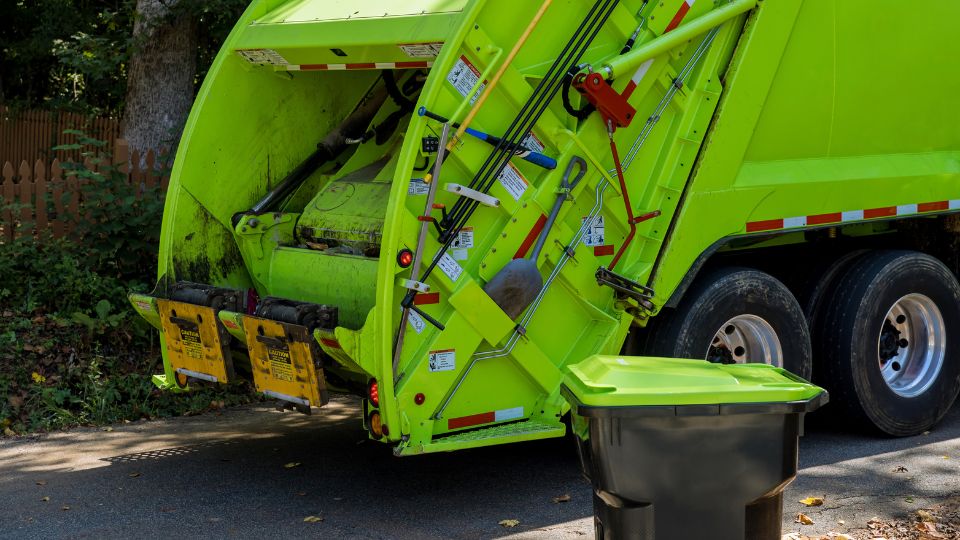
Commercial Waste: Energy Recovery
Waste-to-Energy
Some non-recyclable waste is diverted to waste-to-energy (WtE) plants.
These facilities burn waste to generate electricity and heat.
This process reduces the volume of waste and provides a renewable energy source.
Environmental Impact
While waste-to-energy is a better alternative to landfilling, it still produces emissions.
However, modern WtE plants use advanced technology to filter and reduce harmful pollutants, making it a cleaner option compared to traditional waste disposal methods.
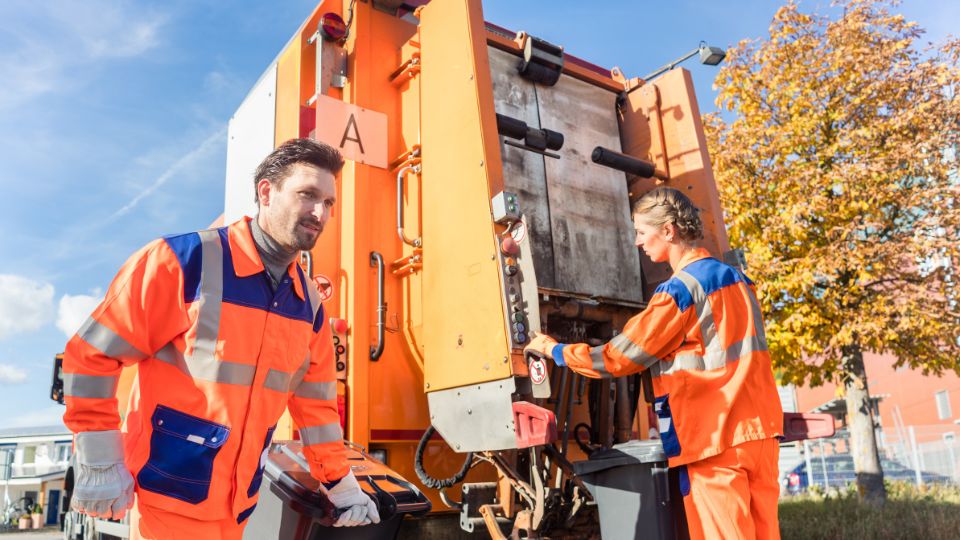
Importance of Compliant Commercial Waste Management
Businesses must comply with the UK’s waste management regulations to avoid hefty fines and legal issues.
Proper documentation, safe handling, and ethical disposal practices are essential.
Partnering with certified waste management companies (just like us!) ensures your business adheres to the law and supports sustainable practices.

